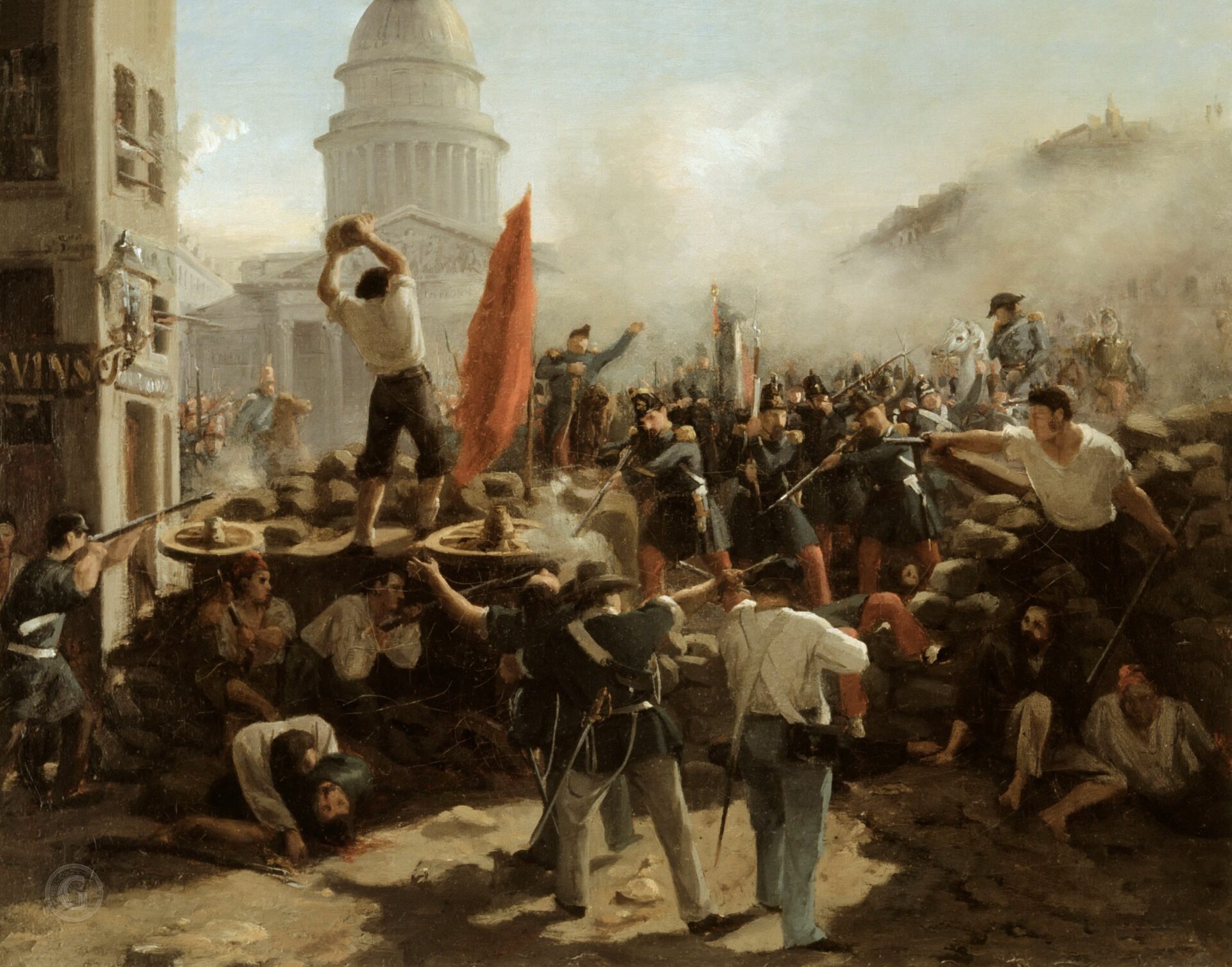Now the German revolutions in 1848 roughly paralleled those in Italy. In Germany, too, liberalism and nationalism won initial victories and then collapsed before internal dissension and Austrian resistance.
The failure in Germany was the more surprising since the revolutionary movement had begun to recruit support among industrial workers, artisans fearing industrial competition, and peasants seeking to abolish the relics of manorialism that had already been swept away in France. Liberal and nationalist agitation, however, was centered in the well- to-do business and professional classes. Most German liberals wanted constitutional monarchies in the various German states, a stronger German Confederation, and an end to the repressive hegemony of Metternich.
The hero of German liberals was King Frederick William IV of Prussia (r. 1840-1861). Attractive and cultivated, Frederick William promised to carry out his father’s unhonored pledge to give Prussia a constitution and an elected assembly. However, the meeting of representatives from the provincial diets that he finally convoked in 1847 did little.
It was, in fact, the Zollverein (Customs Union) which constituted Prussia’s most solid contribution to German unification before 1848. In 1818 Prussia had abolished internal tariffs within its scattered territories and applied a uniform tax on imports. Membership in the Zollverein proved so profitable that by 1844 almost all the German states except Austria had joined. The Zollverein liberated Germany from an oppressive burden of local tolls and taxes and cleared the way for its phenomenal economic development later in the century. The success of the Zollverein suggested that Prussia might naturally take the initiative in political unification.
Stimulated by the example of Paris, the revolutionaries of 1848 scored their first successes in the western German states early in March; from there the demands for constitutions and civil liberties fanned out rapidly. By mid-March most of the rulers of the smaller German states had yielded to the pressure, and in Berlin demonstrators were erecting barricades.
Frederick William accepted some of the liberals’ demands and appealed for calm, but before his appeal could be publicized, rioting broke out with redoubled violence. More than two hundred rioters, chiefly workers, were killed. The mob broke into the royal palace and forced the king to accept the demands of liberals and nationalists. He summoned an assembly to draw up a constitution, declared Prussia “merged in Germany,” and proclaimed himself “king of the free, regenerated German nation.”
Drastic reform of the German Confederation now began. In May 1848 a constitutional convention met at Frankfurt, the capital of the Confederation. Its 830 members were elected throughout Germany, but often by electoral colleges and with suffrage restrictions that made the results less than a true popular mandate.
The assembly lacked a broad popular base. Moreover, its members lacked political experience and talent for practical statesmanship when they had to decide the geographical limits of Germany. The Confederation included Austria proper but excluded most of the non-German Habsburg territories; nor did it include the eastern provinces of Prussia, notably those acquired in the partitions of Poland.
The Austrian issue divided the assembly into two camps: the “Big Germans,” who favored the inclusion of Austria and of Bohemia, with its large Czech population, in the projected German state; and the “Little Germans,” who opposed the idea. Austrian objections to a “Big Germany” ensured the assembly’s adoption of the “Little Germany” proposal, while nationalism overcame liberalism on the question of Prussian Poland. By a large majority the assembly voted to include Prussian areas in which the Poles formed most of the population.
In contrast, in March 1849 the Frankfurt Assembly adopted a liberal national constitution based on the American federal system and British parliamentary practice. The individual states were to surrender many of their powers to the German federal government. The federal legislature would consist of a lower house, elected by universal male suffrage, and an upper house, chosen by the state governments and the legislatures. Ministers responsible to the legislature would form the federal executive. Over all would preside a constitutional monarch, the German emperor.
But the Frankfurt constitution died at birth. The assembly elected the king of Prussia to be emperor, but Frederick William rejected the offer, and the assembly soon disbanded. It had never secured recognition from foreign governments, had never raised a penny in taxes, and had never ruled over Germany.

